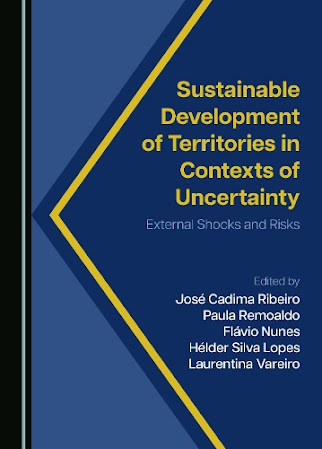Abstract
The pursuit of development has increasingly prioritized sustainability. Sustainable approaches to development and adopting people’s well-being as a main goal have substantial implications for the competitiveness of territories. When viewed through a nature lens, sustainability maintains a close connection with circular economy. If sustainability is the paradigm the world needs to commit to, businesses, policy makers and people have to deal with the difficulties and uncertainties arising from those requirements and other severe phenomena, like international armed conflicts and pandemic crises. By using case studies, this book addresses territorial bottlenecks and grapples with social and developmental challenges. The book intends to function as a practical guide for policymakers and practitioners, providing them with the knowledge necessary to adopt and implement sustainable development strategies. It advocates the implementation of socially inclusive policies and the adoption of innovative governance models able to safeguard democratic principles while enhancing the efficacy of decision-making processes.
Edited by
José Cadima Ribeiro, Paula Remoaldo, Flávio Nunes, Hélder Silva Lopes, and Laurentina Vareiro
TABLE OF CONTENTS
Introduction
José Cadima Ribeiro, Paula Remoaldo, Flávio Nunes, Hélder Silva Lopes, Laurentina Vareiro
Chapter 1
Regional
Tourism Planning: bibliometric review and analysis
Daniela Meneses, Carlos Costa, Fernanda A. Ferreira, Celeste Eusébio
Chapter 2
Regional
Development: sustainability and rurality in the south of Minas Gerais (Brazil)
Carlos Alberto Máximo Pimenta, Jaqueline Viana de Paiva, Gabriel José Dias Ferreira, Jeniffer de Nadae
Chapter 3
The
Development of Municipalities in the Metropolitan Region of Paraíba Valley and
North Coast of São Paulo (Brazil): fiscal sustainability versus social
sustainability
Maxwel Gouveia Simpliciano, Edson Trajano Vieira, Moacir José dos Santos
Chapter 4
Social
Entrepreneurship and Local Development: the case of the MediCar project
Fernando Teixeira, Susana Pescada, Ivone Marques
Chapter 5
Attracting
Digital Nomads to Rural Areas: an attempt to bridge the demographic gap
Rodolpho Tsvetcoff, Rui Patrício, Sofia Alçada
Chapter 6
Gastronomy
of Lambayeque and its Contribution to Regional Development in Peru
Rosse Marie Esparza-Huamanchumo, María del Pilar Miranda-Guerra, María de la Cruz del Rio-Rama, José Álvarez-García
Chapter 7
Use of GIS
for the Delimitation of Renewable Electricity Potential Coverage in the Territories
of Andalusia (Spain): synergies and opportunities toward the energy transition
Lucas da Silva Almeida, Jesús Molina Belmonte, Bárbara Montero González
Chapter 8
Business
Incubators in Low-Density Territories: the case of the municipality of Ferreira
do Alentejo (Portugal)
Fernando Teixeira, Susana Pescada, Claúdia Oliveira
Chapter 9
Pilgrimage,
landscape and human senses across the Portuguese St. James Way
Paula Remoaldo, Eduardo Duque, Vítor Ribeiro, José Cadima
Ribeiro, Sandro Ferreira
- https://www.cambridgescholars.com/product/978-1-0364-0337-9

Sem comentários:
Enviar um comentário